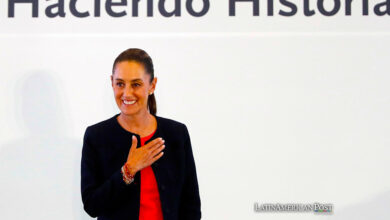Can Javier Milei Revitalize Argentina’s Economy? A Deep Dive into Reform and Resistance

At the “Argentina in Transition” forum, economists deliberated on President Javier Milei’s radical reforms to revive Argentina’s economy, plagued by decades of instability and soaring inflation, signaling a pivotal moment in the nation’s economic history.
Argentina’s Economic Crossroads
Argentina stands at a crossroads, grappling with an economic legacy mired in instability and inflation that has eclipsed the 200 percent mark. The election of President Javier Milei, a libertarian critic of expansive public spending and bureaucracy, has sparked both hope and skepticism about the potential for economic revitalization. This sentiment was the focal point of a forum hosted by the Miami Herbert Business School, aptly titled “Argentina in Transition.”
Argentina has been synonymous with economic volatility for decades, a narrative that Milei aims to change with his controversial reform package. Despite securing approval from the lower house, in general terms, the path forward requires navigating a landscape defined by entrenched interests and systemic challenges. The forum brought together a sextet of Latin America’s top economists to dissect the viability of Milei’s proposals, offering a blend of cautious optimism and critical analysis.
Allan Herbert, a benefactor of the University of Miami and co-organizer of the event, underscored the forum’s significance in contributing to regional well-being. The discussion highlighted a critical juncture in Argentina’s history, where the potential for transformation hinges on implementing Milei’s reforms.
Balancing Liberalization and Social Welfare
Felicia Knaul, emphasizing the nexus between economic policy and healthcare access, highlighted the delicate balance between market liberalization and social welfare. Knaul’s call for prudent reform, inspired by successful models in Canada and Mexico, underscores the complexity of reform in a country where poverty is pervasive.
The forum illuminated the daunting task that lies ahead for Milei. Federico Sturzenegger, an architect of Milei’s deregulation plan, painted a picture of a country at odds with its corporate state, a behemoth resistant to change. Alejandro Werner’s insights from the International Monetary Fund perspective shed light on Argentina’s precarious financial standing, further complicating Milei’s reform agenda.
The discussions revealed a consensus that Milei’s outsider status both empowers and imperils his reformative endeavors. The absence of entrenched political capital means Milei’s journey will be fraught with challenges from an old guard resistant to relinquishing control.
Diverse Perspectives on Milei’s Journey
Panelists, including Fernando Alvarez, Sebastian Galiani, Martin Uribe, and Ivan Werning, contributed to a rich tapestry of perspectives ranging from cautious optimism to skepticism. Their analyses suggest that Milei’s success will require legislative victories and fundamentally reshaping Argentina’s economic discourse and power structures.
The forthcoming item-by-item review of the omnibus reform bill by Argentina’s Chamber of Deputies will be a litmus test for Milei’s administration. This process, encompassing a wide array of issues, will be pivotal in determining the trajectory of Argentina’s economic reform.
Sturzenegger’s observation of a healthier public discourse under Milei’s nascent administration offers hope. The analogy to Australia’s fight against the corporate state serves as a reminder that while the road to reform is fraught with challenges, it is not insurmountable.
Overcoming Systemic Resistance
Argentina’s economic malaise is not merely a product of policy failures but reflects a deeply entrenched system resistant to change. Milei’s radical reform package, while a bold attempt to disrupt this status quo, is the first step in a long journey toward economic stability and growth. The success of these reforms will depend on Milei’s ability to navigate the complex interplay of political resistance, financial realities, and societal needs.
As Argentina embarks on this transition journey, the international community watches closely. The outcome of Milei’s reforms will not only shape the future of Argentina but also offer valuable lessons for other nations grappling with similar challenges.
Also read: Brazil’s Lula Predicts Growth and Inflation Stability in 2024
The “Argentina in Transition” forum is a critical platform for dialogue and analysis at a pivotal moment in Argentina’s economic history. As Milei and his administration forge ahead with their reform agenda, the path to economic revitalization will undoubtedly be marked by both victories and setbacks. However, the broader significance of this endeavor lies in its potential to redefine Argentina’s economic narrative, steering the nation toward a future characterized by stability, growth, and inclusivity.




